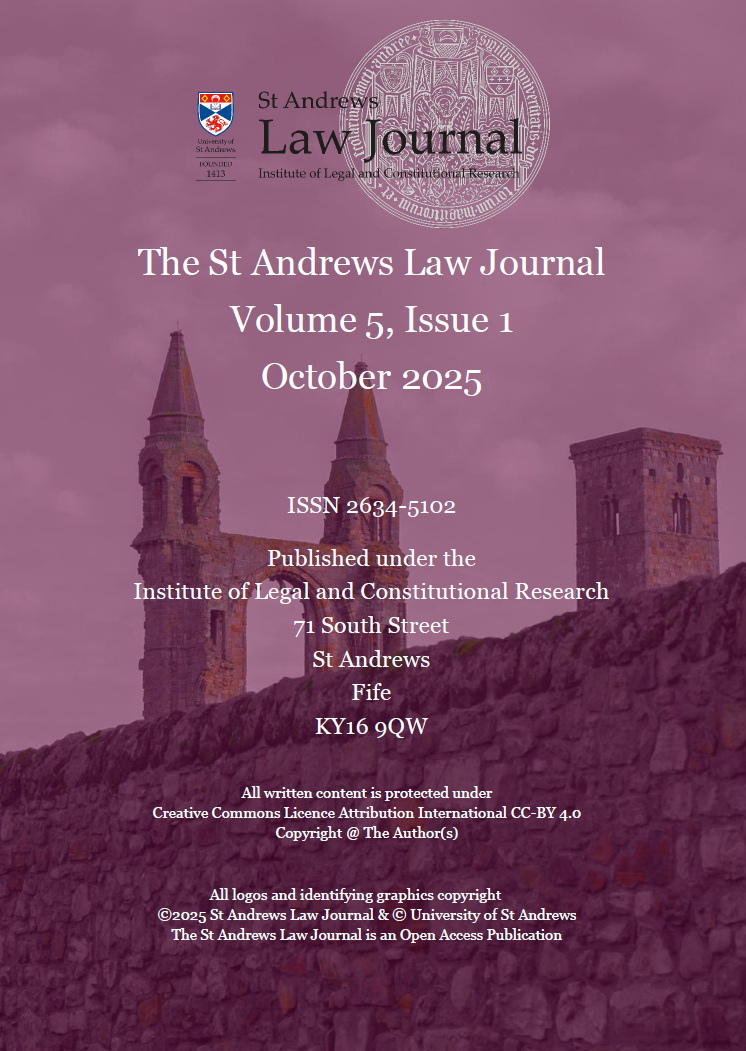Historical Analysis of Disease Prevention in Colonial India: A Medico-Legal Perspective
Main Article Content
Abstract
Modern public health in India evolved drastically during the nineteenth and twentieth centuries under colonial rule. The colonial authorities implemented and enforced various sanitary measures for the army in 1863 and civilians in 1912 through the appointment of Deputy Sanitary Commissioners and Health Officers. However, widespread public resistance broke out against cities planned according to imperial interests, instead of Indigenous welfare. Through studying Reports on Sanitary Measures in India and Gazettes, legal instruments, such as the Epidemic Diseases Act of 1897, are critically assessed with their implications for both public health outcomes and civil liberties. By situating colonial disease prevention within broader frameworks of surveillance, control, and racial hierarchies, this paper contributes to understanding the complex legacies of colonial health policies and their lasting impact on postcolonial public health infrastructure. A comprehensive historical analysis of disease prevention efforts in colonial India, focusing on the intersection between medical policies and legal frameworks enforced by the British colonial administration in their regulation of epidemic diseases like cholera, the plague, and smallpox, can be understood through a medico-legal lens. This period is studied in the paper to explore how the socio-political needs of colonial rule shaped public health strategies. The findings underscore the need to reflect on how historical approaches to epidemic control inform contemporary public health practices and legal frameworks in South Asia.
Article Details

This work is licensed under a Creative Commons Attribution 4.0 International License.
Authors who publish with this journal agree to the following terms:
- Authors retain copyright and grant the journal right of first publication with the work simultaneously licensed under a Creative Commons Attribution License that allows others to share the work with an acknowledgement of the work's authorship and initial publication in this journal.
- Authors are able to enter into separate, additional contractual arrangements for the non-exclusive distribution of the journal's published version of the work (e.g., post it to an institutional repository or publish it in a book), with an acknowledgement of its initial publication in this journal.
- Authors are permitted and encouraged to post their work online (e.g., in institutional repositories or on their website) prior to and during the submission process, as it can lead to productive exchanges, as well as earlier and greater citation of published work (See The Effect of Open Access).

